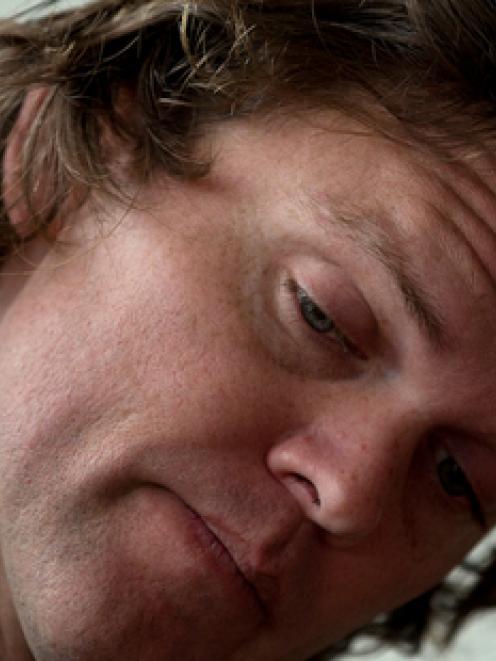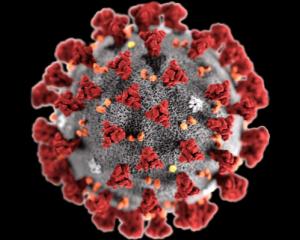
Adams was giving evidence at the Southwark Crown Court over a video link from New Zealand and told the jury he was friends with both Vincent and Chris Cairns, who is on trial for perjury and perverting the course of justice.
He told the jury that he and Vincent "go back a long way" to a time when they played club cricket together for Takapuna.
The pair even lived together in Adams' house when Vincent was first selected for the New Zealand team in 2001.
Crown prosecutor Sasha Wass QC asked him if he was aware of Vincent's mental health issues; Adams described them as periods of Vincent being "up and down".
"When everything was good, his cricket was amazing. He was funny, happy and consistent," said Adams.
"When things went badly, his cricket went badly...he got into a vicious circle and needed time to get rid of the demons."
By "demons", Adams meant negative thoughts or "voices in your head".
He was close enough to Cairns to be invited to his first wedding and described him as a leader in the New Zealand cricketing world, "one of my heroes".
"He was a hero in New Zealand. In India, he was like a god really."
Adams told the court about a time in the English summer of 2008 when Vincent called to arrange a meeting. Both were about to play in the upcoming Indian Cricket League tournament.
"Louie rang me up said 'I've got a deal, something you should look at'," said Adams.
The friends met at the Trafford Centre mall in Manchester where Vincent mentioned an "opportunity" of earning £15,000 to £20,000 for each game.
According to Adams, Vincent said: "I've got this opportunity for you, you don't have to take it, you can make some good money and I don't want you to miss out".
While Vincent "insinuated" rather than spoke directly, Adams said it was clear they were talking about spread betting.
He was not interested in match-fixing but went "along with it" because his friend was "pretty fragile" and they were both outcast at the time.
By this, he meant their international careers seemed to be over because anyone who played in the unsanctioned ICL was banned from representing their countries.
After the meeting with Vincent, Adams was sent an email from an unnamed individual about a "sponsorship deal" which he promptly deleted.
Ms Wass asked why Adams did not report the approach.
"I didn't want to feel like I had let Lou down. At that time, he was pretty fragile. I felt, if I reported him...I thought it might be the straw that broke the camel's back," said Adams.
"If I reported him, I thought he would commit suicide or have done something stupid."
Adams also spoke about a dinner in Delhi where a number of former New Zealand players spoke about spot fixing in the ICL.
He called Cairns saying that even if spot-fixing was happening, the ICL was an unsanctioned event and how would the authorities ever prove it.
Under cross-examination from Orlando Pownall QC, Adams agreed that Vincent never mentioned Chris Cairns when the fixing approach was made to him in Manchester in 2008.
He also agreed that match-fixing, as earlier mentioned in the context of the dinner in Delhi, was a common topic of discussion among players.
Adams also spoke about an after-match function during the Champions League tournament in South Africa in 2012.
"Do you remember Stephen Fleming joining your party and saying to you, 'Your mate is dirty, a matchfixer?' asked Mr Pownall.
He did and agreed with Mr Pownall's suggestion that Adams told Fleming that he should speak to Vincent, denying any involvement himself in matchfixing.
The court had earlier heard from Vincent that Fleming cornered him in the bar and accused him of being "dirty".
Adams did not witness the confrontation but agreed with Pownall's suggestion that Vincent came "back from with his tail between his legs" and said "I'll have to live with this for the rest of my life."
Under further cross examination, Adams said there was "nothing suspicious" about a shopping trip in India raised in evidence by the Crown.
Adams wanted to buy emerald earrings for his wife and so Cairns took him to a jewelry store, where he received a modest discount because Cairns was with him.
He said Cairns was looking at some "reasonably good sized" diamonds for his wife and was on the phone to someone. The conversation indicated that Cairns would be able to take the gems and pay for them later.
Adams saw nothing unusual in this as Cairns was well respected in India and would have had contacts in the business world.
Written statements were also read to the jury from Steve Davis, an international cricket umpire, and Dr Michael McCabe who is an ex-pat New Zealander living in Worcester.
Davis was an official in a One Day International series between England and New Zealand and saw Chris Cairns and Lou Vincent when he was travelling between matches.
He had stopped for a cigarette break at a service station when he recognized the former international players having a coffee together.
Davis chatted with the pair briefly and recalled Cairns said Vincent was playing in Lancashire and they were catching up.
Vincent had earlier given evidence that Cairns asked him to spot fix in an upcoming game for Lancashire. His defence team said Vincent was working for Indian matchfixer Varun Gandhi, not Cairns.
A statement was also read from Dr Michael McCabe, an expat New Zealander who was working in Worcester.
As a cricket fan, he recognized Chris Cairns and Brendon McCullum meeting at his local café where he was having breakfast.
He "clearly heard" their accents but not what they were talking about.
It was at this meeting in 2008 that McCullum alleges Cairns approached him to spot-fix for a second time.
- by Jared Savage of The New Zealand Herald in London












